
Bruce Bower has written about the behavioral sciences since 1984. He often writes about psychology, anthropology, archaeology and mental health issues. Bruce has a master's degree in psychology from Pepperdine University and a master's degree in journalism from the University of Missouri. Following an internship at Science News in 1981, he worked as a reporter at Psychiatric News, a publication of the American Psychiatric Association, until joining Science News as a staff writer. In 1996, the American Psychological Association appointed Bruce a Science Writer Fellow, with a grant to visit psychological scientists of his own choosing. Early stints as an aide in a day school for children and teenagers with severe psychological problems and as a counselor in a drug diversion center provided Bruce with a surprisingly good background for a career in science journalism.

Trustworthy journalism comes at a price.
Scientists and journalists share a core belief in questioning, observing and verifying to reach the truth. Science News reports on crucial research and discovery across science disciplines. We need your financial support to make it happen – every contribution makes a difference.
All Stories by Bruce Bower
-
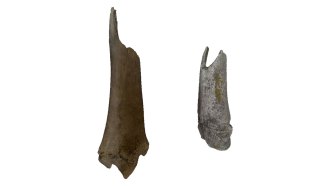 Anthropology
AnthropologySpanish horses joined Indigenous South Americans’ societies long before Europeans came to stay
By the early 1600s, hunter-gatherers at the continent’s southern tip adopted horses left behind by colonial newcomers, new finds suggest.
-
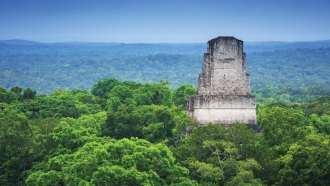 Archaeology
ArchaeologyAncient Maya power brokers lived in neighborhoods, not just palaces
Lidar discoveries and recent excavations are forcing archaeologists to rethink ancient Maya political structures.
-
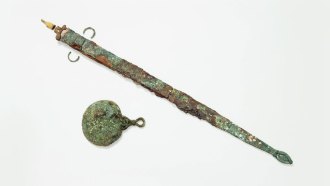 Archaeology
ArchaeologyA mysterious ancient grave with a sword and mirror belonged to a woman
The items hint that she fought in or helped plan raids and defensive actions in what’s now southwestern England about 2,000 years ago, scientists speculate.
-
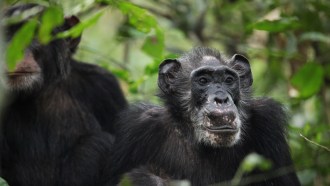 Anthropology
AnthropologySurprisingly long-lived wild female chimps go through menopause
Chimpanzees in Uganda are the first known example of wild, nonhuman primates experiencing the hormonal changes, raising questions about how menopause evolved.
-
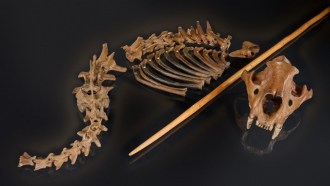 Archaeology
ArchaeologyNeandertals hunted cave lions at least 48,000 years ago
A new study reports the first direct evidence of Neandertals slaying the big cats, and the earliest evidence of any hominids killing a large predator.
-
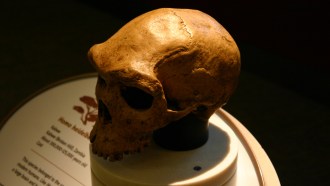 Anthropology
AnthropologyExtreme cold may have nearly wiped out human ancestors 900,000 years ago
Ancestral populations had rebounded by about 800,000 years ago, heralding the evolution of people today, a contested DNA analysis suggests.
-
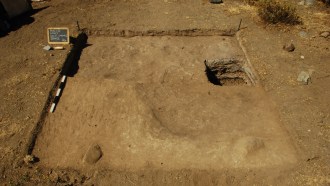 Archaeology
ArchaeologyPre-Inca people stomped salutes to their thunder god on a special dance floor
Excavation of a drumlike platform in the Andes turned up a structure seemingly designed to absorb shocks and emit resonant sounds when stomped upon.
-
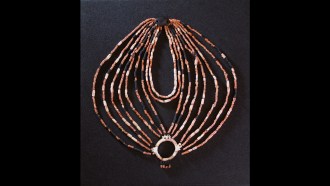 Archaeology
ArchaeologyA child’s ornate necklace highlights ancient farmers’ social complexity
The intricate necklace, reconstructed by researchers, was found on the remains of a child buried about 9,000 years ago in a Middle Eastern village.
-
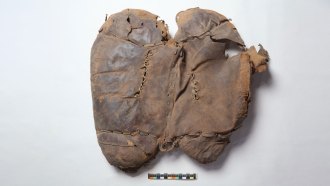 Archaeology
ArchaeologyThe oldest known horseback riding saddle was found in a grave in China
The well-used saddle, dated to more than 2,400 years ago, displays skilled leather- and needlework. Its placement suggests its owner was on a final ride.
-
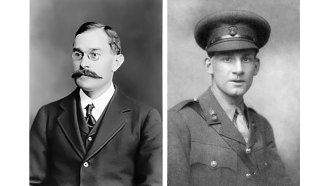 Psychology
Psychology‘Fires in the Dark’ illuminates how great healers ease mental suffering
Kay Redfield Jamison’s new book examines approaches used throughout history to restore troubled minds and broken spirits.
-
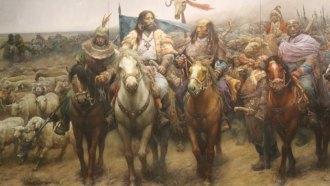 Archaeology
ArchaeologyHow Asia’s first nomadic empire broke the rules of imperial expansion
New studies reveal clues to how mobile rulers assembled a multiethnic empire of herders known as the Xiongnu more than 2,000 years ago.
-
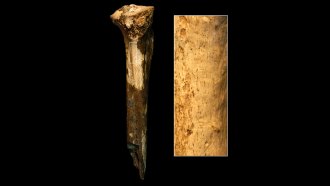 Anthropology
AnthropologyFossil marks suggest hominids butchered one another around 1.45 million years ago
Researchers disagree whether new evidence of stone tool marks on a hominid leg bone reflects ancient cannibalism or perhaps some other, undetected behavior.